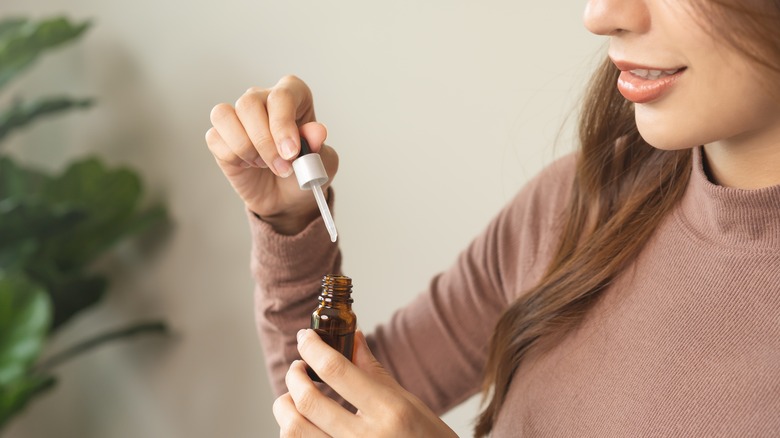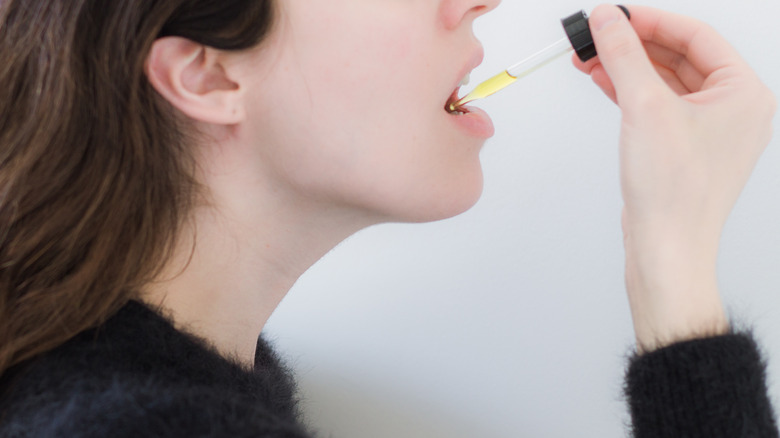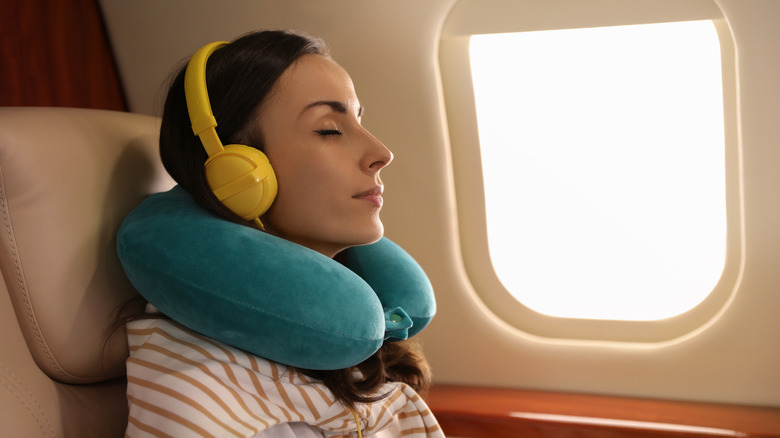Can You Fly With CBD Oil? Here's What You Should Know
As countries around the world slowly decriminalize, legalize, and even support the retail of cannabis in the free market, many can now take a deep breath of relief (or of their favorite strain) and relax. However, when it comes to traveling with cannabis, things are still a bit tricky.
Even when the drug is in its widely legalized and non-psychoactive medicinal form of CBD (cannabidiol) with no THC (tetrahydrocannabinol), travelers can still face issues at state and international borders if not fully informed about local or national rules and regulations.
While many tokers can't wait for the day that cannabis is, at the very least, globally decriminalized, they might still be waiting a while. So when traveling with the herb, even as a medicinally prescribed CBD oil, it's important to be aware of what you can take, how much, and where. If you don't, it can land you in legal hot water. So, here's everything you need to know to stay relaxed and safe when traveling and crossing borders with CBD oil.
Where you can bring CBD oil when traveling
Rather than give you an exhaustive list of where cannabis is decriminalized, illegal, legal, etc., and in what forms — if any — it's allowed, let's just say that it is every individual traveler's responsibility to do their research about the country to which they are traveling.
In general, it should go without saying that traveling with THC is a no-no. As for CBD oil, you will find that traveling with it is much easier, and the rules around it are more lax. In the U.S., you are permitted to bring CBD products on board an airplane as long as it contains less than 0.3% THC. However, whether it's in an oil, cream, tincture, or gel form, you still must comply with the TSA's limits on liquids (less than 3 ounces). Just be sure that where you are traveling permits CBD products, though there are just a couple of hold-out states — Idaho and Nebraska as of this article's publication.
While Europe is often viewed as a very progressive region, most countries still prohibit the sale of THC products, though many allow CBD in some form. However, the E.U. is made up of many countries, each with its own set of laws and regulations. This is why it's important always to do your research. As for other places around the world, most African and Middle Eastern countries have a ban in place on all cannabis products, and a few Asian countries still severely prohibit it as well.
Types of CBD products that are great for travel
If you've never used CBD before, you may not know of its benefits for all kinds of travel annoyances. CBD is most often used to relieve anxiety, aches and pains, migraines, and insomnia. All things you really don't want to deal with when on a long flight with the person in front of you fully reclined and a crying baby across the aisle. While we can't guarantee that CBD products will be your flight-from-hell's saving grace, it might just make it more bearable.
There are several ways you can carry it with you easily and discreetly. For consumables, CBD gummies are a surefire (and fun!) way to get your in-flight R&R on, as well as tinctures that can be placed directly on the tongue or mixed with some tea. For those with aches and pains that may be exacerbated by flying, you may want to bring with you a topical lotion or cream. CBD topicals can be used for everything from arthritis to TMJ (jaw pain). However, CBD creams can also be useful for those with skin conditions that are made worse by the dry air on an airplane, such as eczema or psoriasis.
With any CBD product, you'll want to double-check the percentage of THC the product contains before packing it away. You can find some products with zero CBD, which is your safest bet though in most cases, anything at or under 0.3% is safe to travel.


